Former Adelaide AFLW coach Bec Goddard, former Australian netball coach Lisa Alexander, St Kilda coach Peta Searle.
When will we see more women coaching women at the highest level in AFL football? I thought for sure it would have been this year. But it turns out not.
Richmond recently announced it had redeployed its men’s team assistant coach Ryan Ferguson to coach the club’s AFLW team.
This created some controversy and a buzz on social media. I admit I joined in, posting in a tweet: “I’m sure you are a great man, Ryan, this isn’t what this is about.”. It’s fair to say the appointment got up the nose of many AFW supporters.
You can understand why. Several new AFLW coaches have been appointed. North Melbourne stalwart Darren Crocker has stepped up as North Melbourne’s AFLW coach, and will also scout players for the men’s comp. Daniel Pratt has been announced as West Coast’s AFLW coach.
Adelaide’s Matthew Clarke shifted from the Crows’ men’s program to the women’s in 2018, and Geelong’s Paul Hood, Greater Western Sydney’s Alan McConnell and Melbourne’s Mick Stinear have all made a similar move.
It certainly appears to be a trend, men who have been coaches or assistant coaches in the AFL now transitioning to AFLW head coaches. It looks like a nice pathway, and I’m happy for them. But surely the question we need to start asking is are we creating a pathway for women to start coaching AFLW?
Approaching the fifth season of AFLW, the one and only female head coach is St Kilda’s Peta Searle.
I’ve had the pleasure of getting to know Peta when we were both on the AFLW Rising Star and All-Australian selection committees. Her football knowledge is impressive, she has great instincts about the game and her players’ needs. She lives and breathes football. In fact, if we did a craniotomy on her, I’m pretty sure we’d find a Sherrin in there.
But more than being just a head coach, Peta is a woman who brings an understanding of balancing work life and motherhood. She understands the hidden and unsaid prejudice that comes with that.
She knows what it feels like to be looked at disapprovingly for leaving training on time to get home to her kids.
As a teacher, my day officially ends at 3.45pm when I am allowed to go home. When I became a mother, standing around and gossiping at the end of the day no longer suited me. I wanted to get home to my son.
I did this every day, and was often the first to leave. I actually received an award at a Christmas function for leaving early every day. In fact, I just left when my work finished. I laughed as I received it and said: “It’s not my fault you are not as organised as me.”
PLEASE HELP US CONTINUE TO THRIVE BY BECOMING AN OFFICIAL FOOTYOLOGY PATRON. JUST CLICK THIS LINK.
It seems to be our culture that if a woman leaves on time to go home to family she is seen as leaving “early”.
AFLW premiership coach Bec Goddard threw her hat in the ring for the Richmond job. The reports are that she didn’t even get an interview. If I was texting this news to a friend, I would have added the shocked face emoji, followed by the brain exploding emoji.
We know Adelaide’s AFLW players were on record as saying they played for Goddard because she went above and beyond. Goddard understood the psychological needs of her players as women and they lifted. I honestly believe they connected in a way only women do.
So it seems bizarre to me, when you have a tried and tested AFLW premiership coach who is ready to coach at the highest level again that she would miss out.
What is going on? Is there more to this? Are we seeing the boys’ club mentality take over the space of AFLW, too? How are we going to grow in this space?
Is the AFL genuine about appointing women? It seems it is, announcing in July a subsidy of $200,000 per year, outside the $6.2 million soft cap, to encourage clubs to employ or retain women and Aboriginal and Torres Strait Islander people in their football departments. But I don’t sense that has made the slightest difference.
We are seeing women as part of the support staff like backline coaches, development coaches, ruck coaches. Nearly every club has a woman contributing in some way.
Am I too hasty in thinking that women could be and should be appointed to the top job now? Should it be this elusive? I keep hearing it will happen in 10 years. Why that long?
Have men had control of these areas for so long they simply don’t consider women, or don’t think women have what it takes? So many questions, and they just keep occurring to me.
They offered money and that hasn’t really worked. What next? Does the AFL need to go down the road of quotas? Would that force the hands of clubs in appointing AFLW coaches? And how would you even manage that?
Where are these mysterious pathways? There remains just too many questions. And I think we need to start looking harder for the answers.
Former Australia netball coach Lisa Alexander recently threw her hat in the ring for the North Melbourne AFL senior coaching job, believing her skills were transferable, and that they would suit a men’s AFL team.
Alexander wasn’t successful, but she was at least happy with the way the club handled her application, offering advice and, I’d imagine, a list of necessary skills to acquire.
Lisa is a very driven woman. I wouldn’t be surprised at all if she now goes away and does just that. Which will raise an even bigger question. Having the qualifications, and having done the work suggested by the club itself in order to improve her suitability, will there then be a place for her?
I think a lot of us will be watching that outcome with particular interest.

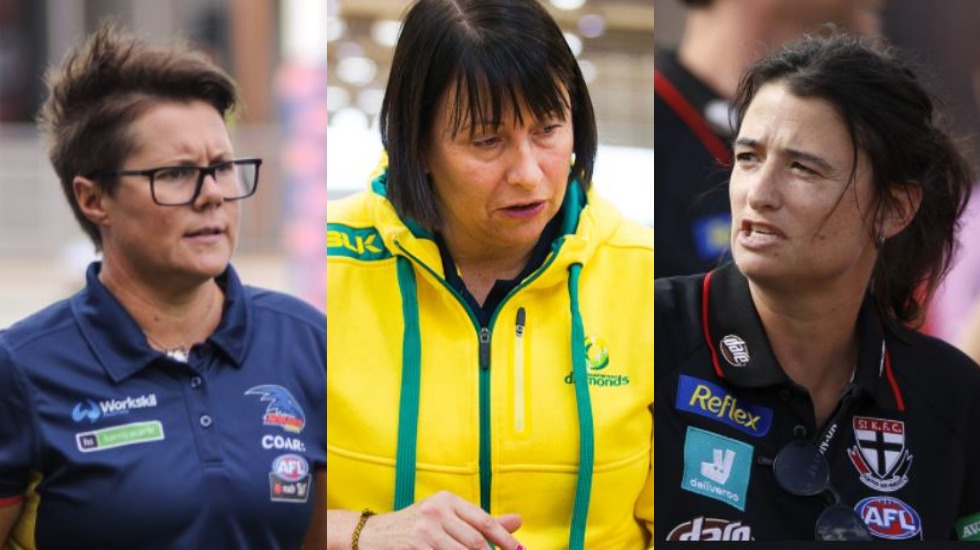

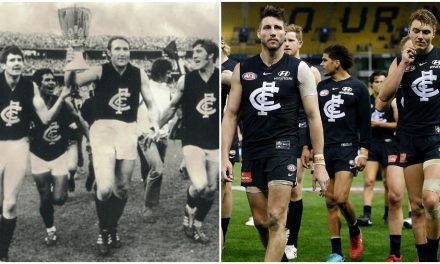
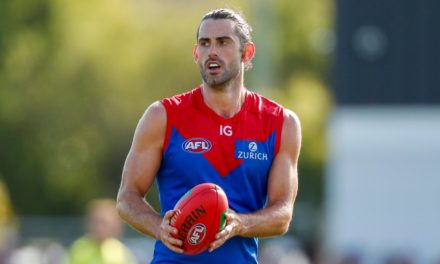
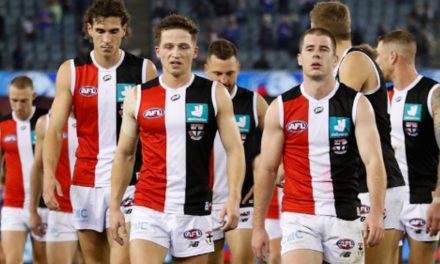
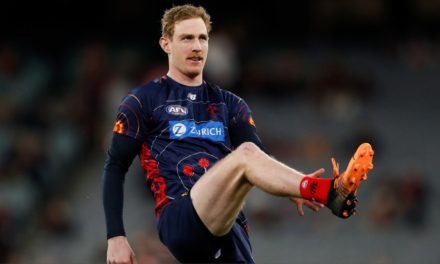






Great piece Shelley. The thing that surprised me about the Lisa Alexander application was more that the club rejected it almost straightaway, and rejected it publicly before it seems that any selection process or shortlist was settled on. To my mind it disrespected her application. I would have thought, in usual HR practice, you inform unsuccessful candidates after the selection has been made. They could have done that, and it would have given the impression of taking Lisa’s application seriously